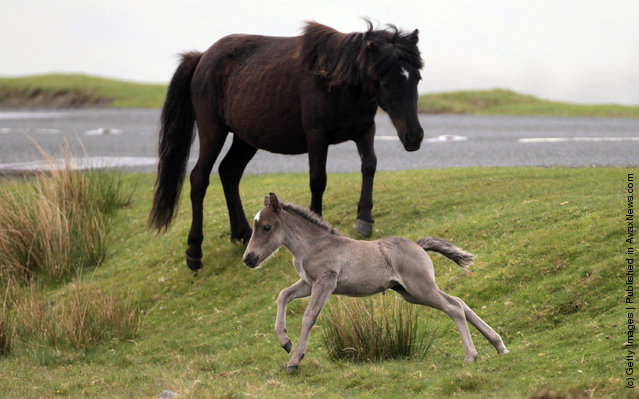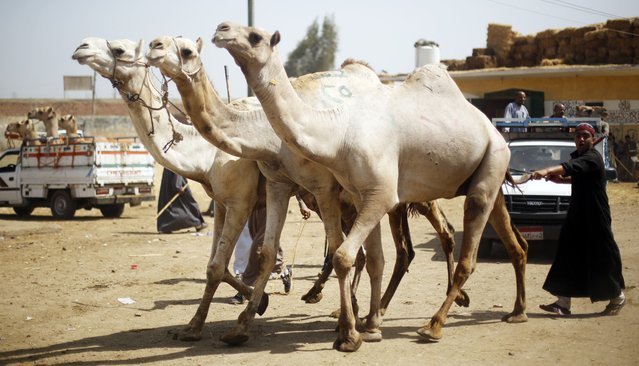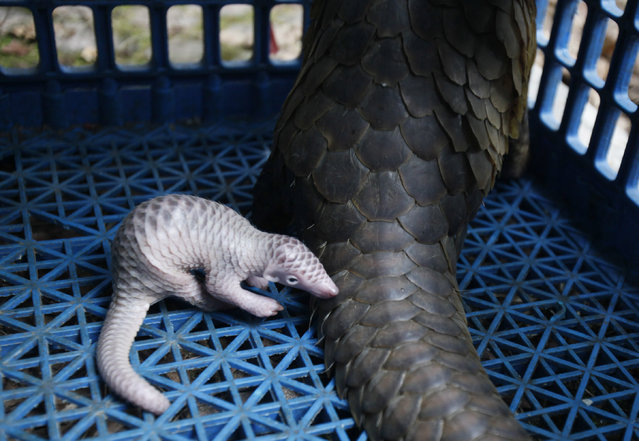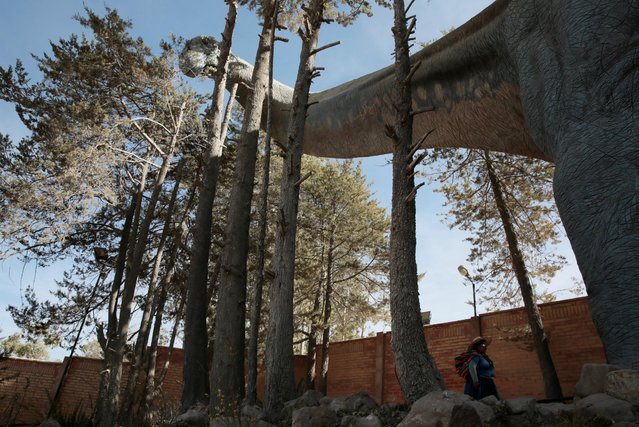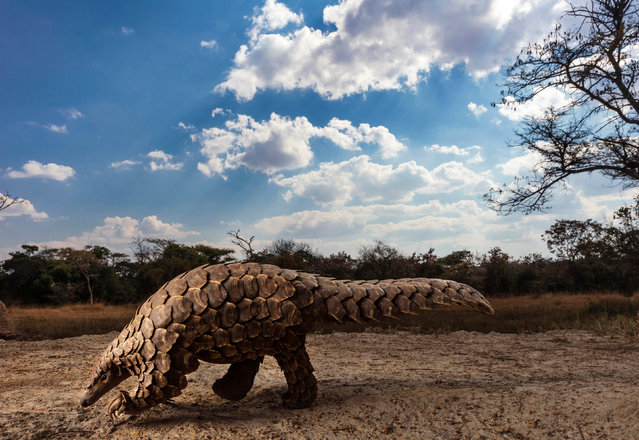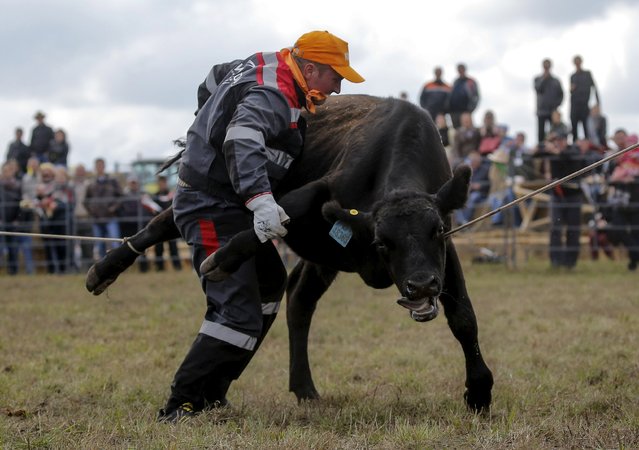
A participant tries to tie a steer during the Russian Rodeo in the village of Kotliakovo, Bryansk region, southeast of Moscow, Russia, September 12, 2015. The competition was organised by privately held Miratorg, one of the leading Russia's meat producers, between the divisions of the agricultural holding. (Photo by Maxim Shemetov/Reuters)
16 Sep 2015 13:45:00,post received
0 comments


